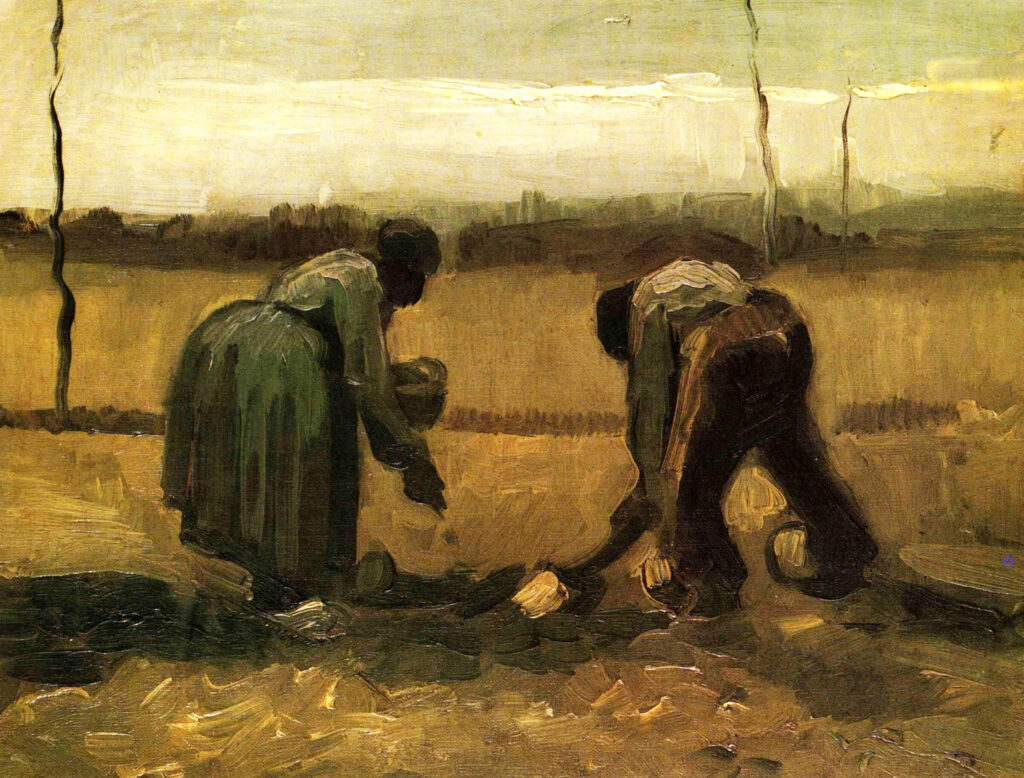In previous articles, I recalled that the Pombaline reform of “Restoration of the Kingdom of the Algarve” has the year 1773 as its fundamental date, and therefore marks its 2023th anniversary in this year of 250.
Similar to the customs “hateful indifference” that existed between the Kingdom of the Algarve and the Kingdom of Portugal, which meant that the Algarve region was treated as a foreign country, also with regard to agricultural and land holdings, the Marquis of Pombal identified serious problems and even illicit practices. Let's see his enlightening words on this subject:
«Agriculture was for the most part reduced to the terms of being an impossible thing: because it being a certain axiom in Political Arithmetic that in the happiest and most prosperous Countries, only one of a hundred people has the means to live in abundance; the Algarve's farming was necessarily reduced to these hundredths of wealthy people. On account of the fact that having bought almost all the land from the needy, having then leased it to them with such fees, and so onerous that they exceeded their production».
Pombal very clearly identified, in this excerpt from the Fourth Inspection on National Trade (BNP, Colecção Pombalina, PBA 695), the two main problems affecting the Algarve in terms of agricultural exploitation: on the one hand, the fact that the land if they are in possession of a small number of owners, which, in pre-industrial periods, in which wealth was based on land ownership, made these men the richest in the region; on the other hand, in addition to owning the land, the same owners entered into illegal land access and exploitation contracts, in which they did not respect the interest rates stipulated by law, thus burdening the farmers with annual pensions so high that they became they became unbearable.
Indeed, an analysis of the income distribution of the Algarve's population in the 1770s makes it possible to assess great inequality, with a significant part of these incomes in the hands of a small percentage of the population. In the city of Faro, for example, 49,2% of total income belonged to only 5% of the total resident active population; in Loulé, 1% of active residents in that village concentrated 27,9% of income.
We are facing very high levels of inequality which, in turn, had repercussions on great social inequality. Observing, closely, to whom the bulk of the income belonged, we found the local nobility – the nobility who occupied the land’s governance positions and the high military positions –, the most prosperous businessmen – who, as a way of social ascension, they had begun to acquire land – and also the prebendated clergy – that is, the clerics who occupied high hierarchical positions in the Algarve diocese. In addition to these individuals were powerful institutions or groups (such as the Cabido, Misericórdias, Monasteries and Convents, etc.) with linked properties.
In addition to income and social inequality, the signing of illegal contracts for access to and exploitation of land also dangerously undermined the development of regional agriculture. It is not interesting here to go into specific legal terms, but this type of contract was described, at the time, as usurious: the law in force stipulated an annual interest rate of 5% for them, but in reality, the large landowners in the Algarve charged annual rate of 10%, that is, twice as much.
It quickly became clear to Pombal that there existed in the Kingdom of the Algarve a group of “powerful” lords – that was how they were referred to in the documentary sources – who concentrated wealth in themselves and did not respect the laws of the Kingdom. And it would also quickly be realized that it would be very difficult to stand up to this group, which was much more interested in maintaining its economic interests and the status quo than in contributing to the common good and a more equitable distribution of income.
Thus, when still in the 1760s Pombal determined the creation of a Board whose objective was to verify the land contracts of the Kingdom of the Algarve, they soon rose up against the voices of the “powerful” “Provedores das Mizericordias, Hospitals e Albergarias, Administrators of Chapels , Confraternities, Prelates, and Prelates of Convents and Monasteries located in the Kingdom of the Algarve, and more private persons”, making its operation unfeasible. And when, on the 16th of January 1773, the same board was restored, again a powerful group from Algarve society, this time the Cabido of the Diocese of the Algarve – sent a representation in which it discussed the legal nature of the contracts. The Board never fully functioned, and the Pombaline plans to combat illicit contracts in this way and thus promote Algarve agriculture fell on deaf ears.
In a current situation in which claims are raised to draw attention to an unequal distribution of wealth, concentrated in a small percentage of the world's population - it is enough, for that, to remember Thomas Piketty and his work Capital in the XXI century, in which he refers highest concentration of wealth in 1% of the population – it is not at all negligible to recall that in previous periods of our history we have already experienced similar inequality indices, but which were progressively altered through the construction of the welfare state. Are we taking big steps towards its destruction?
This article is the second in a small series that will mark the 250 years of the main measures of the Pombaline project of “Restoration of the Kingdom of the Algarve”. The next article will address the issue of fisheries.
Author: Andreia Fidalgo is a historian and writes according to the rules of the previous Spelling Agreement
Note: This article is the second in a small series that will mark the 250 years of the main measures of the Pombaline project of “Restoration of the Kingdom of the Algarve”. The next article will address the topic of agriculture.



















Comments